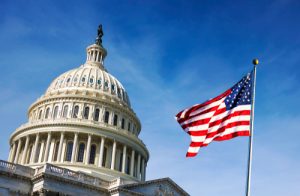
U.S. Sen. John Hoeven (R-ND) on Jan. 6 joined more than a dozen of his Republican colleagues in introducing legislation that would establish a committee to examine the 2020 presidential elections.
“After the 2020 election, too many North Dakotans and Americans have concerns about irregularities in the presidential election,” Sen. Hoeven said. “This legislation will ensure that we examine the 2020 election and make necessary reforms to ensure the integrity and security of the vote so the American people can have confidence in our election system.”
Sen. Hoeven is the lead original cosponsor of 12 who introduced S. 13 with bill sponsor U.S. Sen. Tim Scott (R-SC). If enacted, the measure would establish an advisory committee to make recommendations on improvements to the security, integrity and administration of federal elections, according to the congressional record bill summary.
Among the original cosponsors who joined Sen. Hoeven in signing on to the bill are U.S. Sens. Deb Fischer (R-NE), Joni Ernst (R-IA), Shelley Moore Capito (R-WV), Todd Young (R-IN), Bill Cassidy (R-LA), Jerry Moran (R-KS), and Mike Rounds (R-SD).
The newly formed committee under S. 13 would be composed of 18 members, nine equally appointed by Republican and Democratic leaders, according to Sen. Hoeven’s office.
The committee would be tasked with studying the effects of the COVID–19 pandemic on the 2020 presidential election; the election practices adopted in response to the COVID–19 pandemic; practices regarding mail-in ballots, absentee ballots and vote-by-mail procedures; and the scope of any improper or fraudulent voter registration or votes, according to the summary provided by Sen. Hoeven’s office.
The committee also would be required to submit two reports. The first report would analyze precinct-by-precinct data highlighting the number and incidence of any alleged voter fraud. The final report would include recommendations on best practices for each level of local and state governments to adopt, the summary says.



